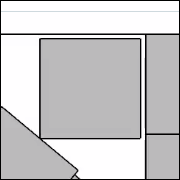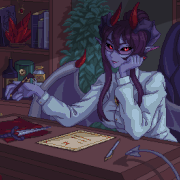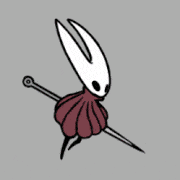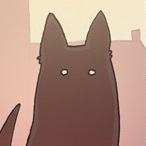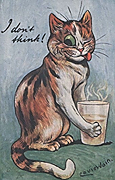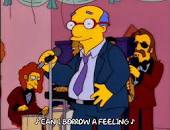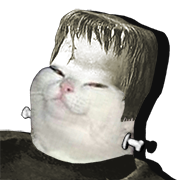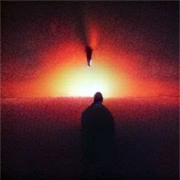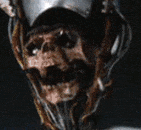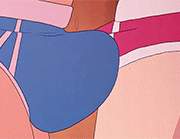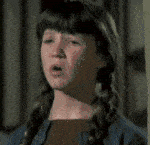- free hubcaps
- Oct 12, 2009
-
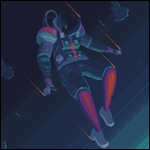

|
I recently read a MR James collection. I wouldn't call the stories scary but they are still entertaining and strangely quaint. I would love to go to a library and see a ghost
Yea his stories are usually about academic types getting badly spooked and arent very frightening per se; they create a great sense of period and atmosphere though. I always think of A Christmas Carol as a prime example of victorian ghosts; it's all about atmosphere and a sense of dread rather than our modern sensibilities which I think trends towards jump scares, gore and other genuinely disturbing stuff.
Anyways, Blackwood was a master of atmosphere and some of his stuff like The Willows almost leans towards lovecraftian style cosmic horror in some ways.
https://www.youtube.com/watch?v=P-a3iWuLAPk
Algernon Blackwood posted:
THE KIT BAG
When the words 'Not Guilty' sounded through the crowded courtroom that dark December afternoon, Arthur Wilbraham, the great criminal K.C., and leader for the triumphant defence, was represented by his junior; but Johnson, his private secretary, carried the verdict across to his chambers like lightning.
'It's what we expected, I think,' said the barrister, without emotion; 'and, personally, I am glad the case is over.' There was no particular sign of pleasure that his defence of John Turk, the murderer, on a plea of insanity, had been successful, for no doubt he felt, as everybody who had watched the face felt, that no man had ever better deserved the gallows.
'I'm glad too,' said Johnson. He had sat in the court for ten days watching the face of the man who had carried out with callous detail one of the most brutal and cold-blooded murders of recent years.
The counsel glanced up at his secretary. They were more than employer and employed; for family and other reasons, they were friends. 'Ah, I remember, yes,' he said with a kind smile, 'and you want to get away for Christmas. You're going to skate and ski in the Alps, aren't you? If I was your age I'd come with you.'
Johnson laughed shortly. He was a young man of twenty-six, with a delicate face like a girl's. 'I can catch the morning boat now,' he said; 'but that's not the reason I'm glad the trial is over. I'm glad it's over because I've seen the last of that man's dreadful face. It positively haunted me. That white skin, with the black hair brushed low over the forehead, is a thing I shall never forget, and the description of the way the dismembered body was crammed and packed with lime into that——'
'Don't dwell on it, my dear fellow,' interrupted the other, looking at him curiously out of his keen eyes, 'don't think about it. Such pictures have a trick of coming back when one least wants them.' He paused a moment. 'Now go,' he added presently, 'and enjoy your holiday. I shall want all your energy for my Parliamentary work when you get back. And don't break your neck skiing.'
Johnson shook hands and took his leave. At the door he turned suddenly.
'I knew there was something I wanted to ask you,' he said. 'Would you mind lending me one of your kit-bags? It's too late to get one tonight, and I leave in the morning before the shops are open.'
'Of course; I'll send Henry over with it to your rooms. You shall have it the moment I get home.'
'I promise to take great care of it,' said Johnson gratefully, delighted to think that within thirty hours he would be nearing the brilliant sunshine of the high Alps in winter. The thought of that criminal court was like an evil dream in his mind.
He dined at his club and went on to Bloomsbury, where he occupied the top floor in one of those old, gaunt houses in which the rooms are large and lofty. The floor below his own was vacant and unfurnished, and below that were other lodgers whom he did not know. It was cheerless, and he looked forward heartily to a change. The night was even more cheerless: it was miserable, and few people were about. A cold, sleety rain was driving down the streets before the keenest east wind he had ever felt. It howled dismally among the big, gloomy houses of the great squares, and when he reached his rooms he heard it whistling and shouting over the world of black roofs beyond his windows.
In the hall he met his landlady, shading a candle from the draughts with her thin hand. 'This come by a man from Mr Wilbr'im's, sir.'
She pointed to what was evidently the kit-bag, and Johnson thanked her and took it upstairs with him. 'I shall be going abroad in the morning for ten days, Mrs Monks,' he said. 'I'll leave an address for letters.'
'And I hope you'll 'ave a merry Christmas, sir,' she said, in a raucous, wheezy voice that suggested spirits, ‘and better weather than this.'
'I hope so too,' replied her lodger, shuddering a little as the wind went roaring down the street outside.
When he got upstairs he heard the sleet volleying against the window panes. He put his kettle on to make a cup of hot coffee, and then set about putting a few things in order for his absence. 'And now I must pack—such as my packing is,' he laughed to himself, and set to work at once.
He liked the packing, for it brought the snow mountains so vividly before him, and made him forget the unpleasant scenes of the past ten days. Besides, it was not elaborate in nature. His friend had lent him the very thing—a stout canvas kit-bag, sack-shaped, with holes round the neck for the brass bar and padlock. It was a bit shapeless, true, and not much to look at, but its capacity was unlimited, and there was no need to pack carefully. He shoved in his waterproof coat, his fur cap and gloves, his skates and climbing boots, his sweaters, snow-boots, and ear-caps; and then on the top of these he piled his woollen shirts and underwear, his thick socks, puttees, and knickerbockers. The dress-suit came next, in case the hotel people dressed for dinner, and then, thinking of the best way to pack his white shirts, he paused a moment to reflect. 'That's the worst of these kit-bags,' he mused vaguely, standing in the centre of the sitting-room, where he had come to fetch some string.
It was after ten o'clock. A furious gust of wind rattled the windows as though to hurry him up, and he thought with pity of the poor Londoners whose Christmas would be spent in such a climate, whilst he was skimming over snowy slopes in bright sunshine, and dancing in the evening with rosy-cheeked girls—— Ah! that reminded him; he must put in his dancing-pumps and evening socks. He crossed over from his sitting-room to the cupboard on the landing where he kept his linen.
And as he did so he heard someone coming up the stairs. He stood still a moment on the landing to listen. It was Mrs Monks's step, he thought; she must be coming up with the last post. But then the steps ceased suddenly, and he heard no more. They were at least two flights down, and he came to the conclusion they were too heavy to be those of his bibulous landlady. No doubt they belonged to a late lodger who had mistaken his floor. He went into his bedroom and packed his pumps and dress-shirts as best he could.
The kit-bag by this time was two-thirds full, and stood upright on its own base like a sack of flour. For the first time he noticed that it was old and dirty, the canvas faded and worn, and that it had obviously been subjected to rather rough treatment. It was not a very nice bag to have sent him—certainly not a new one, or one that his chief valued. He gave the matter a passing thought, and went on with his packing. Once or twice, however, he caught himself wondering who it could have been wandering down below, for Mrs Monks had not come up with letters, and the floor was empty and unfurnished. From time to time, moreover, he was almost certain he heard a soft tread of someone padding about over the bare boards—cautiously, stealthily, as silently as possible—and, further, that the sounds had been lately coming distinctly nearer.
For the first time in his life he began to feel a little creepy. Then, as though to emphasize this feeling, an odd thing happened: as he left the bedroom, having just packed his recalcitrant white shirts, he noticed that the top of the kit-bag lopped over towards him with an extraordinary resemblance to a human face. The canvas fell into a fold like a nose and forehead, and the brass rings for the padlock just filled the position of the eyes. A shadow—or was it a travel stain? for he could not tell exactly—looked like hair. It gave him rather a turn, for it was so absurdly, so outrageously, like the face of John Turk, the murderer.
He laughed, and went into the front room, where the light was stronger.
'That horrid case has got on my mind,' he thought; 'I shall be glad of a change of scene and air.' In the sitting-room, however, he was not pleased to hear again that stealthy tread upon the stairs, and to realize that it was much closer than before, as well as unmistakably real. And this time he got up and went out to see who it could be creeping about on the upper staircase at so late an hour.
But the sound ceased; there was no one visible on the stairs. He went to the floor below, not without trepidation, and turned on the electric light to make sure that no one was hiding in the empty rooms of the unoccupied suite. There was not a stick of furniture large enough to hide a dog. Then he called over the banisters to Mrs Monks, but there was no answer, and his voice echoed down into the dark vault of the house, and was lost in the roar of the gale that howled outside. Everyone was in bed and asleep—everyone except himself and the owner of this soft and stealthy tread.
'My absurd imagination, I suppose,' he thought. 'It must have been the wind after all, although—it seemed so very real and close, I thought.' He went back to his packing. It was by this time getting on towards midnight. He drank his coffee up and lit another pipe—the last before turning in.
It is difficult to say exactly at what point fear begins, when the causes of that fear are not plainly before the eyes. Impressions gather on the surface of the mind, film by film, as ice gathers upon the surface of still water, but often so lightly that they claim no definite recognition from the consciousness. Then a point is reached where the accumulated impressions become a definite emotion, and the mind realizes that something has happened. With something of a start, Johnson suddenly recognized that he felt nervous—oddly nervous; also, that for some time past the causes of this feeling had been gathering slowly in his mind, but that he had only just reached the point where he was forced to acknowledge them.
It was a singular and curious malaise that had come over him, and he hardly knew what to make of it. He felt as though he were doing something that was strongly objected to by another person, another person, moreover, who had some right to object. It was a most disturbing and disagreeable feeling, not unlike the persistent promptings of conscience: almost, in fact, as if he were doing something he knew to be wrong. Yet, though he searched vigorously and honestly in his mind, he could nowhere lay his finger upon the secret of this growing uneasiness, and it perplexed him. More, it distressed and frightened him.
'Pure nerves, I suppose,' he said aloud with a forced laugh. 'Mountain air will cure all that! Ah,' he added, still speaking to himself, 'and that reminds me—my snow-glasses.'
He was standing by the door of the bedroom during this brief soliloquy, and as he passed quickly towards the sitting-room to fetch them from the cupboard he saw out of the corner of his eye the indistinct outline of a figure standing on the stairs, a few feet from the top. It was someone in a stooping position, with one hand on the banisters, and the face peering up towards the landing. And at the same moment he heard a shuffling footstep. The person who had been creeping about below all this time had at last come up to his own floor. Who in the world could it be? And what in the name of Heaven did he want?
Johnson caught his breath sharply and stood stock still. Then, after a few seconds' hesitation, he found his courage, and turned to investigate. The stairs, he saw to his utter amazement, were empty; there was no one. He felt a series of cold shivers run over him, and something about the muscles of his legs gave a little and grew weak. For the space of several minutes he peered steadily into the shadows that congregated about the top of the staircase where he had seen the figure, and then he walked fast—almost ran, in fact—into the light of the front room; but hardly had he passed inside the doorway when he heard someone come up the stairs behind him with a quick bound and go swiftly into his bedroom. It was a heavy, but at the same time a stealthy footstep—the tread of somebody who did not wish to be seen. And it was at this precise moment that the nervousness he had hitherto experienced leaped the boundary line, and entered the state of fear, almost of acute unreasoning fear. Before it turned into terror there was a further boundary to cross, and beyond that again lay the region of pure horror. Johnson's position was an unenviable one.
‘By Jove! That was someone on the stairs, then,' he muttered, his flesh crawling all over; 'and whoever it was has now gone into my bedroom.' His delicate, pale face turned absolutely white, and for some minutes he hardly knew what to think or do. Then he realized intuitively that delay only set a premium upon fear; and he crossed the landing boldly and went straight into the other room, where, a few seconds before, the steps had disappeared.
'Who's there? Is that you, Mrs Monks?' he called aloud, as he went, and heard the first half of his words echo down the empty stairs, while the second half fell dead against the curtains in a room that apparently held no other human figure than his own.
'Who's there?' he called again, in a voice unnecessarily loud and that only just held firm. 'What do you want here?'
The curtains swayed very slightly, and, as he saw it, his heart felt as if it almost missed a beat; yet he dashed forward and drew them aside with a rush. A window, streaming with rain, was all that met his gaze. He continued his search, but in vain; the cupboards held nothing but rows of clothes, hanging motionless; and under the bed there was no sign of anyone hiding. He stepped backwards into the middle of the room, and, as he did so, something all but tripped him up. Turning with a sudden spring of alarm he saw—the kit-bag.
'Odd!' he thought. 'That's not where I left it!' A few moments before it had surely been on his right, between the bed and the bath; he did not remember having moved it. It was very curious. What in the world was the matter with everything? Were all his senses gone queer? A terrific gust of wind tore at the windows, dashing the sleet against the glass with the force of small gunshot, and then fled away howling dismally over the waste of Bloomsbury roofs. A sudden vision of the Channel next day rose in his mind and recalled him sharply to realities.
‘There's no one here at any rate; that's quite clear!' he exclaimed aloud. Yet at the time he uttered them he knew perfectly well that his words were not true and that he did not believe them himself. He felt exactly as though someone was hiding close about him, watching all his movements, trying to hinder his packing in some way. 'And two of my senses,' he added, keeping up the pretence, 'have played me the most absurd tricks: the steps I heard and the figure I saw were both entirely imaginary.'
He went back to the front room, poked the fire into a blaze, and sat down before it to think. What impressed him more than anything else was the fact that the kit-bag was no longer where he had left it. It had been dragged nearer to the door.
What happened afterwards that night happened, of course, to a man already excited by fear, and was perceived by a mind that had not the full and proper control, therefore, of the senses. Outwardly, Johnson remained calm and master of himself to the end, pretending to the very last that everything he witnessed had a natural explanation, or was merely delusions of his tired nerves. But inwardly, in his very heart, he knew all along that someone had been hiding downstairs in the empty suite when he came in, that this person had watched his opportunity and then stealthily made his way up to the bedroom, and that all he saw and heard afterwards, from the moving of the kit-bag to—well, to the other things this story has to tell—were caused directly by the presence of this invisible person.
And it was here, just when he most desired to keep his mind and thoughts controlled, that the vivid pictures received day after day upon the mental plates exposed in the courtroom of the Old Bailey, came strongly to light and developed themselves in the dark room of his inner vision. Unpleasant, haunting memories have a way of coming to life again just when the mind least desires them—in the silent watches of the night, on sleepless pillows, during the lonely hours spent by sick and dying beds. And so now, in the same way, Johnson saw nothing but the dreadful face of John Turk, the murderer, lowering at him from every corner of his mental field of vision; the white skin, the evil eyes, and the fringe of black hair low over the forehead. All the pictures of those ten days in court crowded back into his mind unbidden, and very vivid.
'This is all rubbish and nerves,' he exclaimed at length, springing with sudden energy from his chair. 'I shall finish my packing and go to bed. I'm overwrought, overtired. No doubt, at this rate I shall hear steps and things all night!'
But his face was deadly white all the same. He snatched up his field-glasses and walked across to the bedroom, humming a music-hall song as he went—a trifle too loud to be natural; and the instant he crossed the threshold and stood within the room something turned cold about his heart, and he felt that every hair on his head stood up.
The kit-bag lay close in front of him, several feet nearer to the door than he had left it, and just over its crumpled top he saw a head and face slowly sinking down out of sight as though someone were crouching behind it to hide, and at the same moment a sound like a long-drawn sigh was distinctly audible in the still air about him between the gusts of the storm outside.
Johnson had more courage and will-power than the girlish indecision of his face indicated; but at first such a wave of terror came over him that for some seconds he could do nothing but stand and stare. A violent trembling ran down his back and legs, and he was conscious of a foolish, almost a hysterical, impulse to scream aloud. That sigh seemed in his very ear, and the air still quivered with it. It was unmistakably a human sigh.
'Who's there?' he said at length, finding his voice; but though he meant to speak with loud decision, the tones came out instead in a faint whisper, for he had partly lost the control of his tongue and lips.
He stepped forward, so that he could see all round and over the kit-bag. Of course there was nothing there, nothing but the faded carpet and the bulging canvas sides. He put out his hands and threw open the mouth of the sack where it had fallen over, being only three parts full, and then he saw for the first time that round the inside, some six inches from the top, there ran a broad smear of dull crimson. It was an old and faded blood stain. He uttered a scream, and drew back his hands as if they had been burnt. At the same moment the kit-bag gave a faint, but unmistakable, lurch forward towards the door.
Johnson collapsed backwards, searching with his hands for the support of something solid, and the door, being further behind him than he realized, received his weight just in time to prevent his falling, and shut to with a resounding bang. At the same moment the swinging of his left arm accidentally touched the electric switch, and the light in the room went out.
It was an awkward and disagreeable predicament, and if Johnson had not been possessed of real pluck he might have done all manner of foolish things. As it was, however, he pulled himself together, and groped furiously for the little brass knob to turn the light on again. But the rapid closing of the door had set the coats hanging on it a-swinging, and his fingers became entangled in a confusion of sleeves and pockets, so that it was some moments before he found the switch. And in those few moments of bewilderment and terror two things happened that sent him beyond recall over the boundary into the region of genuine horror—he distinctly heard the kit-bag shuffling heavily across the floor in jerks, and close in front of his face sounded once again the sigh of a human being.
In his anguished efforts to find the brass button on the wall he nearly scraped the nails from his fingers, but even then, in those frenzied moments of alarm—so swift and alert are the impressions of a mind keyed-up by a vivid emotion—he had time to realize that he dreaded the return of the light, and that it might be better for him to stay hidden in the merciful screen of darkness. It was but the impulse of a moment, however, and before he had time to act upon it he had yielded automatically to the original desire, and the room was flooded again with light.
But the second instinct had been right. It would have been better for him to have stayed in the shelter of the kind darkness. For there, close before him, bending over the half-packed kit-bag, clear as life in the merciless glare of the electric light, stood the figure of John Turk, the murderer. Not three feet from him the man stood, the fringe of black hair marked plainly against the pallor of the forehead, the whole horrible presentment of the scoundrel, as vivid as he had seen him day after day in the Old Bailey, when he stood there in the dock, cynical and callous, under the very shadow of the gallows.
In a flash Johnson realized what it all meant: the dirty and much-used bag; the smear of crimson within the top; the dreadful stretched condition of the bulging sides. He remembered how the victim's body had been stuffed into a canvas bag for burial, the ghastly, dismembered fragments forced with lime into this very bag; and the bag itself produced as evidence—— It all came back to him as clear as day. . . .
Very softly and stealthily his hand groped behind him for the handle of the door, but before he could actually turn it the very thing that he most of all dreaded came about, and John Turk lifted his devil's face and looked at him. At the same moment that heavy sigh passed through the air of the room, formulated somehow into words: 'It's my bag. And I want it.'
Johnson just remembered clawing the door open, and then falling in a heap upon the floor of the landing, as he tried frantically to make his way into the front room.
He remained unconscious for a long time, and it was still dark when he opened his eyes and realized that he was lying, stiff and bruised, on the cold boards. Then the memory of what he had seen rushed back into his mind, and he promptly fainted again. When he woke the second time the wintry dawn was just beginning to peep in at the windows, painting the stairs a cheerless, dismal grey, and he managed to crawl into the front room, and cover himself with an overcoat in the armchair, where at length he fell asleep.
A great clamour woke him. He recognized Mrs Monks's voice, loud and voluble.
'What! You ain't been to bed, sir! Are you ill, or has anything 'appened? And there's an urgent gentleman to see you, though it ain't seven o'clock yet, and——'
'Who is it?' he stammered. 'I'm all right, thanks. Fell asleep in my chair, I suppose.'
'Someone from Mr Wilb'rim's, and he says he ought to see you quick before you go abroad, and I told him——'
'Show him up, please, at once,' said Johnson, whose head was whirling, and his mind was still full of dreadful visions.
Mr Wilbraham's man came in with many apologies, and explained briefly and quickly that an absurd mistake had been made, and that the wrong kit-bag had been sent over the night before.
'Henry somehow got hold of the one that came over from the courtroom, and Mr Wilbraham only discovered it when he saw his own lying in his room, and asked why it had not gone to you,' the man said.
'Oh!' said Johnson stupidly.
'And he must have brought you the one from the murder case instead, sir, I'm afraid,' the man continued, without the ghost of an expression on his face. 'The one John Turk packed the dead body in. Mr Wilbraham's awful upset about it, sir, and told me to come over first thing this morning with the right one, as you were leaving by the boat.'
He pointed to a clean-looking kit-bag on the floor, which he had just brought. 'And I was to bring the other one back, sir,' he added casually.
For some minutes Johnson could not find his voice. At last he pointed in the direction of his bedroom. 'Perhaps you would kindly unpack it for me. Just empty the things out on the floor.'
The man disappeared into the other room, and was gone for five minutes. Johnson heard the shifting to and fro of the bag, and the rattle of the skates and boots being unpacked.
'Thank you, sir,' the man said, returning with the bag folded over his arm. 'And can I do anything more to help you, sir?'
'What is it?' asked Johnson, seeing that he still had something he wished to say.
The man shuffled and looked mysterious. 'Beg pardon, sir, but knowing your interest in the Turk case, I thought you'd maybe like to know what's happened——'
'Yes.'
'John Turk killed hisself last night with poison immediately on getting his release, and he left a note for Mr Wilbraham saying as he'd be much obliged if they'd have him put away, same as the woman he murdered, in the old kit-bag.'
'What time—did he do it?' asked Johnson.
'Ten o'clock last night, sir, the warder says.'
|










